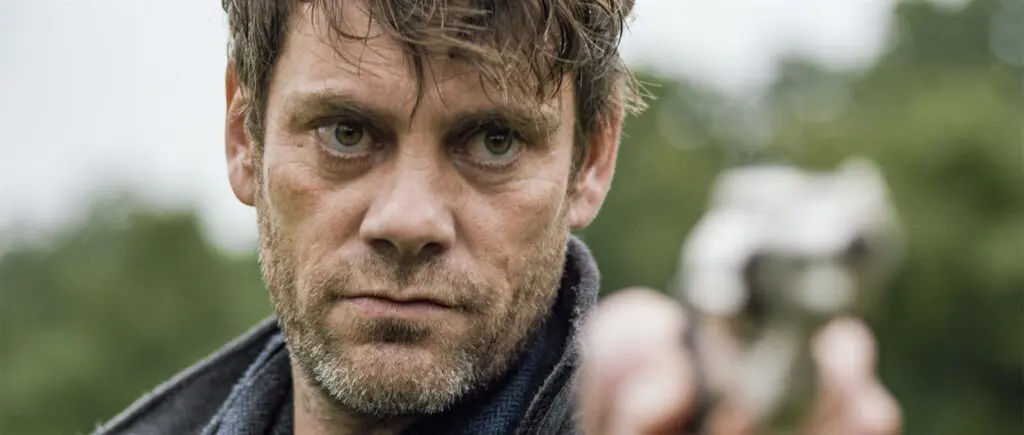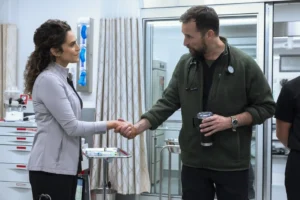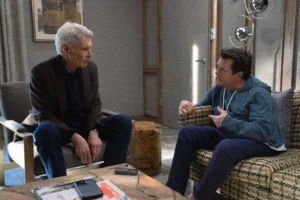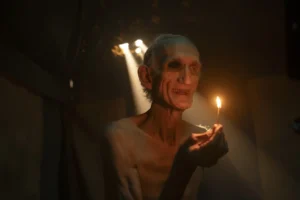Summary
Here Be Dragons has two note-worthy performances from Sapsford and Bestic.
Here Be Dragons refers to the medieval practice of placing illustrations of monsters, such as sea creatures or, commonly, dragons, on areas of maps that are uninhabited and uncharted.
It’s a perfect fit for the script’s plot and weighty themes. A dense drama about past regrets, never-ending nightmares, ethical grey areas, and statute of limitations be damned.
Writer/director Alastair Newton Brown’s film is an evocative take on stoic meditative revenge. The story centers around David Locke (Nathan Sapsford), a UN crime investigator working at the International Criminal Tribunal for the former Yugoslavia (ICTY). Locke has a personal stake in the search and prosecution of Bosnian war criminals. Twenty-five years earlier, he was a UN peacekeeping soldier (known for wearing blue berets). He fell in love with a woman from a prominent family who became a victim of the genocide. By whom? A Bosnian Serb war criminal named Ivan Novak (Slobodan Bestic) had come to know of Locke’s relationship.
There is a prisoner exchange, and one man is still breathing on the back of the truck. It’s his love’s brother, Emir Ibrahimovic. Novak makes Locke climb on top of a dump truck and tiptoes through the dead bodies. He pulls the man out. As the decades pass by, the ICTY confirmed all the criminals are in jail or dead. However, when Emir shows up to tell David that he believes that Novak is still alive. He is given money and freedom to form a hunting party to see if Emir’s hunch is true. Their target is a therapist who goes by the name of Jovan Petrovic. He counsels war veterans with issues stemming from trauma-related PTSD. They travel to Belgrade to perform their investigation.
Brown’s film has steady hands, which come from two noteworthy turns: the stunningly good Sapsford and a two-headed monster of a performance from Bestic, who, at points, gives a glimpse of sobering evil and, by the end of the film, with a single weathered look, overwhelming repentance. This is a fantastic psychological chess game these two are playing. It drives the film, from the powerful first act and the cat and mouse maneuvering throughout the film’s second.
Where Here Be Dragons falters despite Marc Windon’s beautiful cinematography and Brian Cachia’s moving score, is the overdone, overlong, and overwrought final act. For one, a faux subplot involves a small child trying to “act” like an adult. (When he sees Locke unexpectedly, he questions why he was there instead of cheerfully greeting him as any kid would). That the child then picks up the gun to protect his father doesn’t ring true. Finally, Svetislav Goncic’s Emir is strangely hollow and one note for a man trying to avenge bloody memories of his family and friends genocide.
Here Be Dragons is not a thriller but a nonconformist stirring drama that plays with heavy themes of genuine compassion, ruminating revenge that’s crippling, and the never-ending cycle of violence. Overall, the tone and haunting memories of unresolved personal and shared history were mildly reminiscent of David Mamet’s Homicide in the sense that a haunting past leads to a violent, bloody ending for everyone involved. Here, Locke and Novak’s journey comes full circle and in eye-opening ways.




